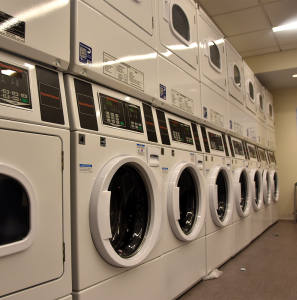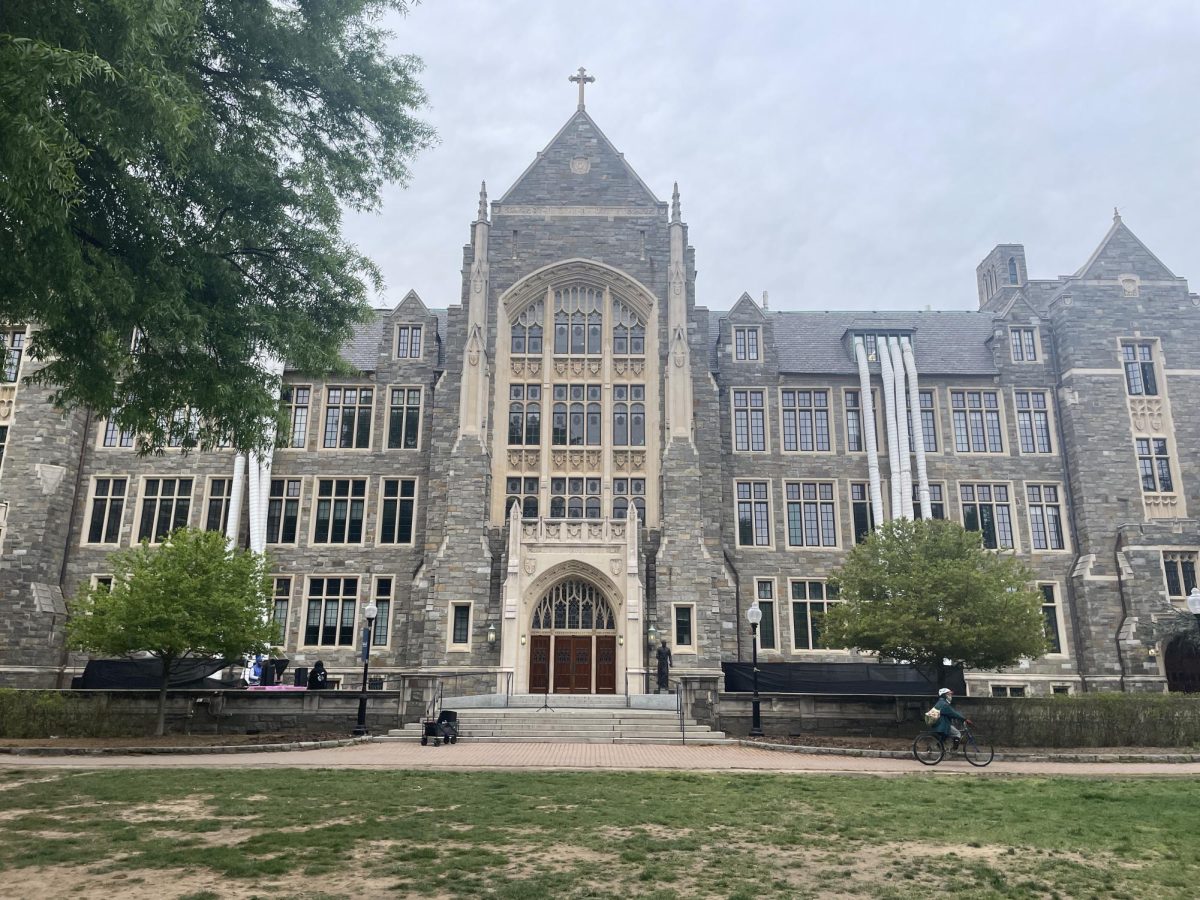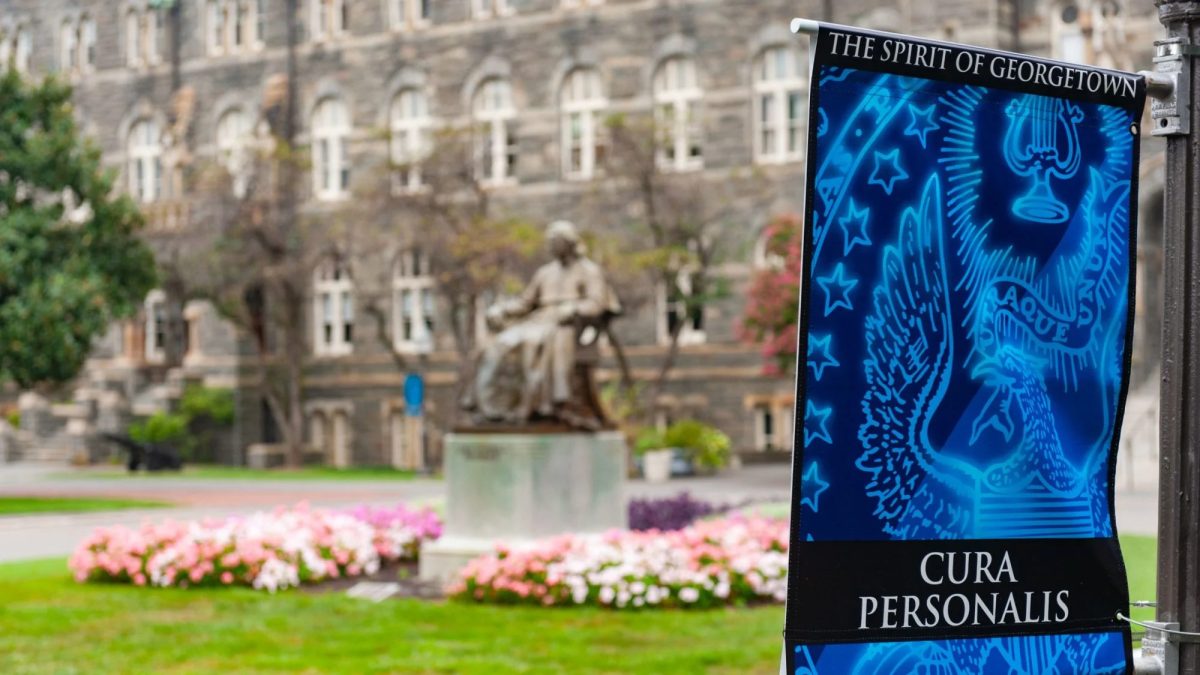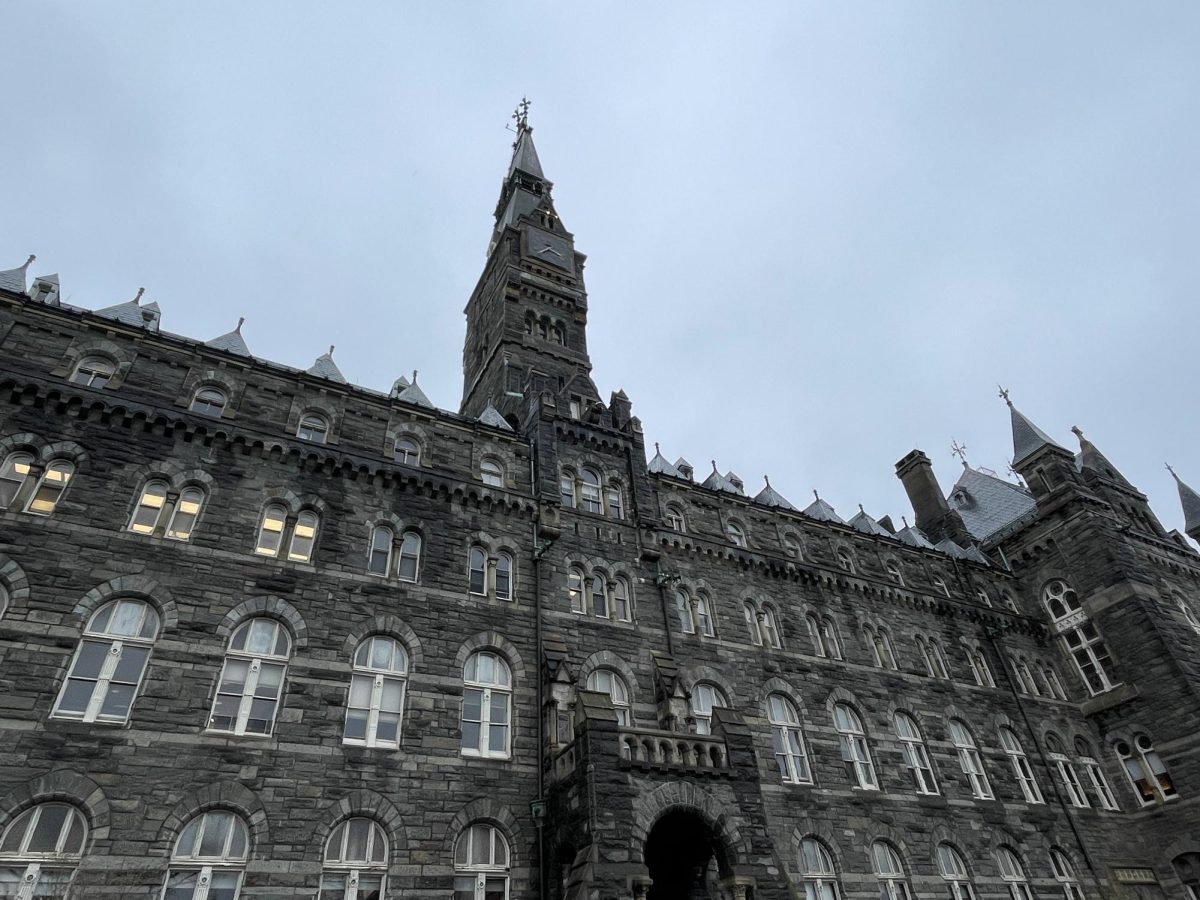
Room and board charges for the 2017-2018 school year will include the cost of 24 loads of laundry, the result of a joint effort between the Office of Residential Living and the Georgetown University Student Association.
The university plans to include the price of 24 loads of laundry in room and board charges for the 2017-18 school year to reduce the economic burden of laundry costs on students receiving financial aid.
The Office of Residential Living collaborated with the Georgetown University Student Association on the program, which will consider one load as both washing and drying. The program will allow students to do 1.5 loads of laundry per week on average without using additional GOCard funds. The laundry fee will not be included in the room rates for townhouses.
Students currently pay $1.75 for each separate load of washing and drying, following a fee increase from $1.50 in September 2016.
According to Speaker of the GUSA Senate Richie Mullaney (COL ’18), the inclusion of laundry costs will be offset by the elimination of other fees.
“They adjusted other costs to offset the new laundry cost in this trial run because the university is not looking to profit off of laundry,” Mullaney said about the university administration’s efforts.
The inclusion of laundry in room and board charges comes amid an average 2 to 3 percent increase in housing charges next year.
Charges for double rooms in residence halls will increase 2.8 percent, from $5,045 to $5,188, while charges for double rooms in apartments will increase by 2.7 percent from $5,440 to $5,592.
According to the Office of Residential Living, this increase is in line with the typical annual rate increase of 2 to 3 percent. On average, students can expect an approximately $300 increase in housing each year, according to Executive Director for Residential Living Patrick Killilee.
General increases in operational costs for the university, including staffing, utilities, maintenance and furniture, primarily drive the increase, according to GUSA Deputy Chief of Staff Christopher Holshouser (MSB ’18).
The planned $6 million renovation to residential living complexes, including the complete renovation of 15 units in Alumni Square, are not contributing to the increase in charges. Residential construction projects, which include improvements to current buildings, are covered by university capital budgets for investments in master planning, according to Killilee.
According to Mullaney, the number of loads of laundry was decided upon in an effort to encourage students to do laundry regularly and to not overload the machines. The number is subject to change if students do not use the total amount of loads available or if the university notices a need to increase the number of loads.
Mullaney said minimizing the cost of the plan was essential.
“When I was in the Student Life Committee of the senate, we did a large poll of students to see how they felt about laundry in general at Georgetown,” Mullaney said. “One thing that we saw was that some students were particularly concerned with pricing and inequity as it relates to laundry prices.”
Concerns about the financial burden of laundry on low-income students began under the previous administration of former GUSA President Enushe Khan (MSB ’17) and former GUSA Vice President Chris Fisk (COL ’17), who led the initiative.
“Socio-economic inclusivity has been a clear priority for our administration, and this effort is but one of many things GUSA has done this year to tackle the issue,” Fisk said.
Currently, low-and middle-income students who receive financial aid are not able to apply it towards laundry. Under this program, laundry can be covered by financial aid.
Mullaney said the laundry system’s implementation next semester is a trial run, and GUSA plans to review it with the university next semester.
GUSA is also working with the administration to ensure that the cost of any unused loads of laundry can be returned to students as a refund, according to Mullaney.
“We’re still working out the kinks and still working with the administration to make sure that its equitable not just for some people, but for everyone,” Mullaney said.
Fisk said he believes this plan will have a significant impact on the whole Georgetown student body, but particularly on low-income students.
“This tangibly helps so many students here, especially those from low-income backgrounds,” Fisk said. “Small changes like this are concrete steps toward making Georgetown an easier, more accessible place to navigate.”



















Isaac Liu • Apr 7, 2017 at 10:25 am
^The Senate was informed of it.
Dick Pointer • Apr 7, 2017 at 10:18 am
This is the type of controversial action that the GUSA Senate should have to approve… “student government” by executive cronies is the true GUSA!